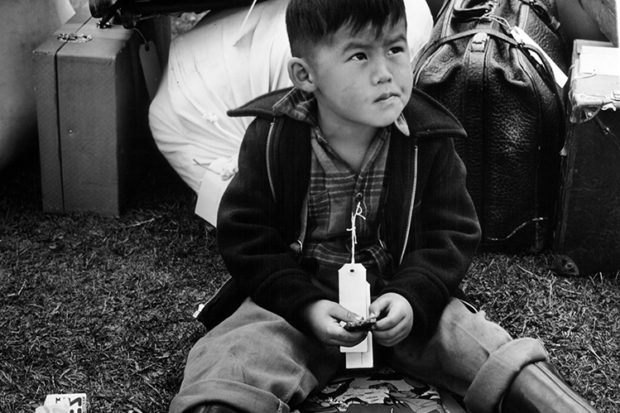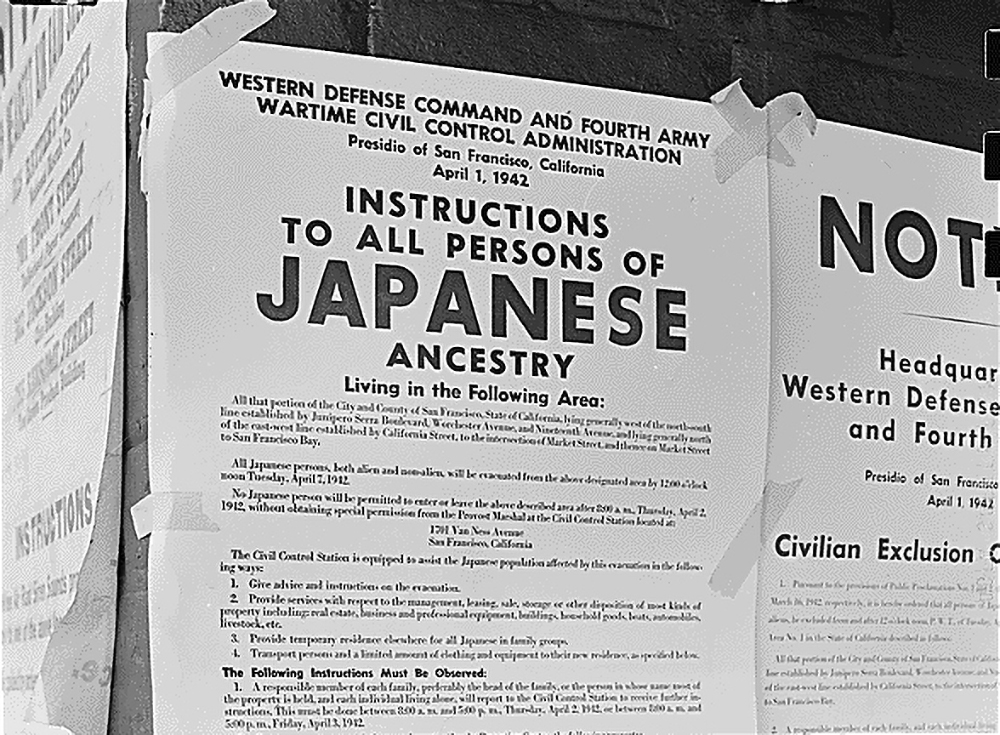
California Attorney General Rob Bonta issued a formal apology acknowledging the state Attorney General Office’s past complicity in the unjust deprivation of Japanese Americans’ civil rights and civil liberties during and after World War II. This announcement was made on Aug. 9 on the 35th anniversary of the Civil Liberties Act of 1988.
The Community Alliance newspaper is taking this opportunity to announce a new campaign to End the Cycle of Exclusion in the San Joaquin Valley.
We will educate the San Joaquin Valley on the history related to the Japanese American internment particularly as it relates to the area’s involvement and victims by using existing archives; interviewing survivors and their descendants; preparing content for dissemination via newsprint, radio, social media and an informational website; and holding seminars at educational institutions.
A particular area to be addressed will be the peripheral effects of the internment on local Asian communities other than Japanese Americans. Moreover, we will make the connection to similar issues today including the large-scale incarceration of African Americans and the current immigrant experience.

This is the text from Bonta’s press statement:
Today, the California Attorney General’s Office publicly acknowledges and apologizes to Americans of Japanese ancestry for the Office’s role in the unjust deprivation of Japanese Americans’ civil rights and civil liberties during World War II. As the Civil Liberties Act of 1988 recognizes, “a grave injustice” was done to citizens and residents of Japanese ancestry and the relocation and incarceration of these civilians was “motivated largely by racial prejudice, wartime hysteria, and a failure of political leadership.”
In 1942, California Attorney General Earl Warren testified before Congress in support of Executive Order 9066, which authorized the forced removal and incarceration of Japanese Americans. In his testimony, Attorney General Warren assailed the loyalty of Japanese Americans, using unfounded speculation characterized as “evidence” to justify not only the arbitrary incarceration of some 120,000 Japanese Americans—including children—but also the use of the California Alien Land Law to take possession of agricultural land owned by Japanese American families. The California Alien Land Law of 1913 prohibited Asian immigrants from purchasing or leasing land until 1952 when the California Supreme Court held the law violated the 14th Amendment.
During and immediately after World War II, this Office instituted over 70 escheat actions under the Alien Land Law to seize land owned by families of Japanese descent. Attorney General Robert Kenny created an “alien land unit” within the Office, which filed escheat cases against Japanese American families that were locked away in War Relocation Authority camps. In 1945, the Attorney General’s Office received a $200,000 grant from the Legislature to investigate and prosecute more Alien Land Law cases as Japanese Americans began to return to California to find their homes had been burned down. As the California Supreme Court ultimately recognized in 1952, the “real purpose” of the Alien Land Law “was the elimination of competition by [foreign-born] Japanese in farming California land” and the basis for the legislation was “race undesirability.”
In 1944, this Office joined the states of Washington and Oregon in submitting an amicus brief in the US Supreme Court in the Korematsu v. United States case, supporting the imprisonment of Fred Korematsu despite the lack of any evidence that he posed a security threat. The amicus brief argued, “it was reasonable for the military commander to meet the danger threatened from the unidentified disloyal members of the group by excluding the group as a whole” because the military lacked “an adequate test of loyalty.” We recognize today that this was unequivocally incorrect.
During times when some seek to fan the flames of xenophobia, hate, and intolerance, it is not enough to simply refrain from throwing stones. As Martin Luther King, Jr. once said: “A time comes when silence is betrayal.” The modern revival of Alien Land Laws in several states and the resurgence of anti-Asian hate across our country present such a moment. In the past, this Office used legal tools to deprive a generation of Japanese Californians of their liberty and financial security. But, just as Earl Warren came to recognize it was wrong to advocate for Executive Order 9066, the California Attorney General’s Office can and must share with the country its regret and error in utilizing the Alien Land Law as an instrument of racial discrimination.
“As Attorney General of California, I am committed to defending the civil rights and civil liberties of all citizens and residents of California. This includes confronting past errors at a time when racism, fear, and xenophobia once again threatens to assault the fundamental freedoms and rights we all share. With deep regret for the actions of this Office that contributed to the suffering of Japanese Americans during that era, I offer this sincere apology and re-commit this Office to the equal protection of the life, liberty, and property of all Americans.”
The Community Alliance newspaper will focus on the history related to the Japanese American internment, particularly as it relates to the Fresno area’s involvement and local victims, thanks to funding provided by the State of California, administered by the California State Library. Twenty-two diverse projects across the state have received approximately $1.5 million in grants from the California State Library to educate Californians about their civil liberties.

